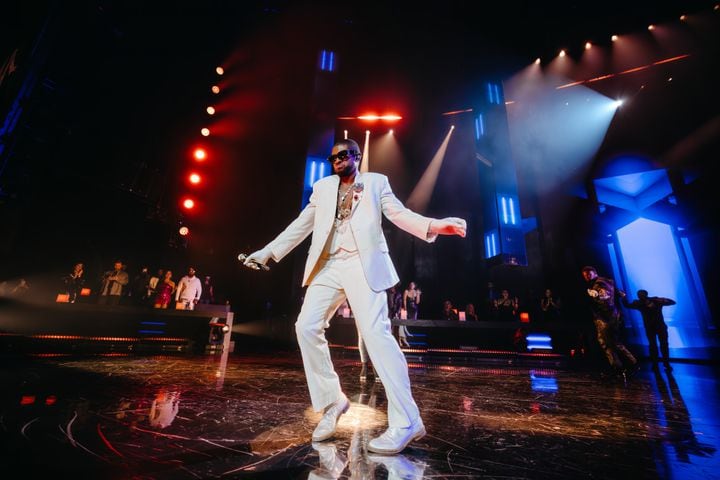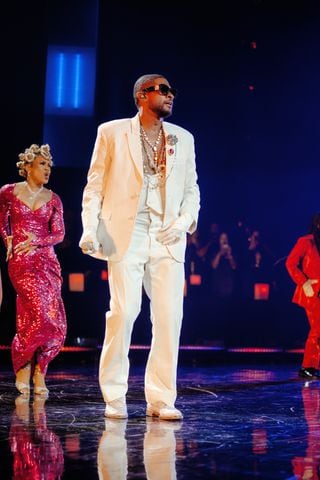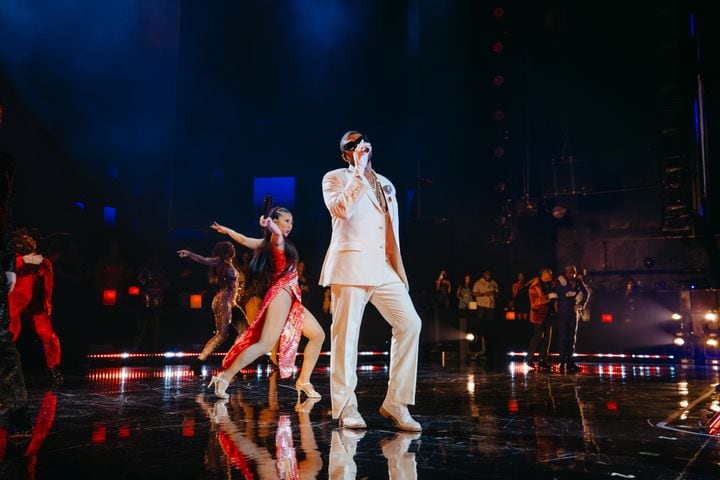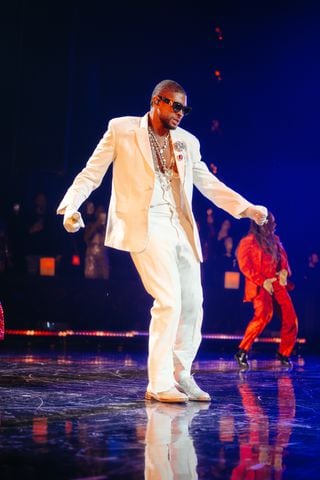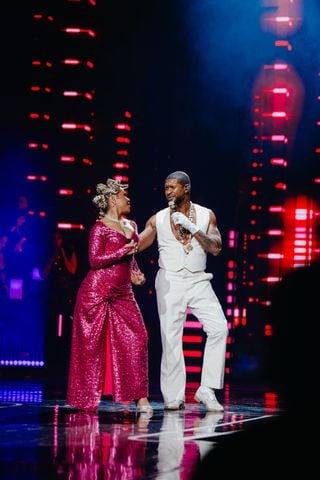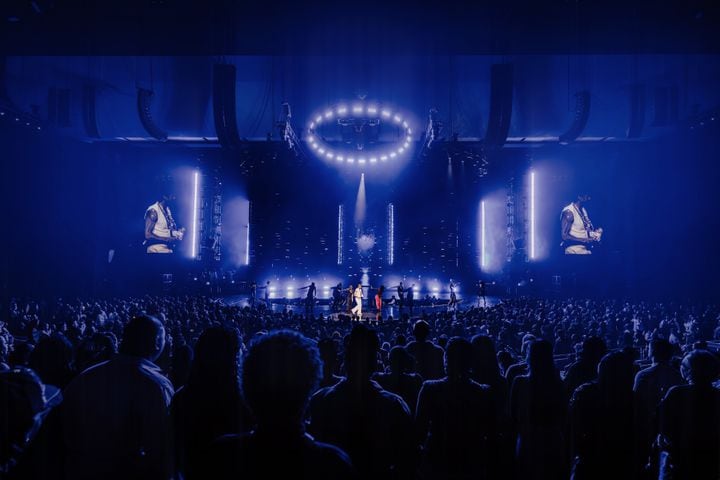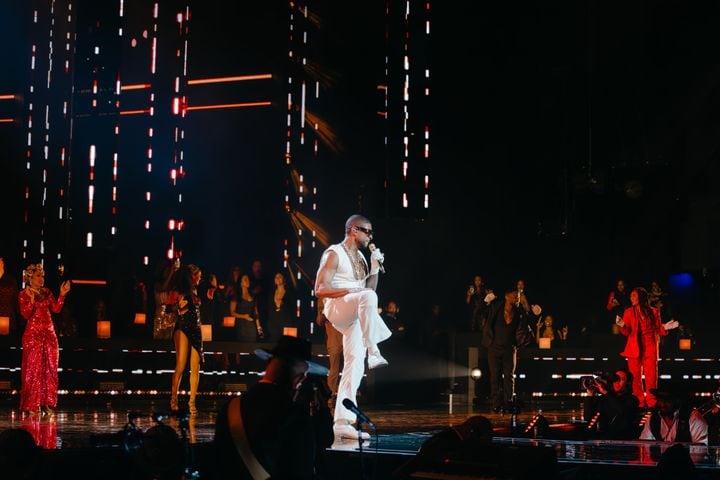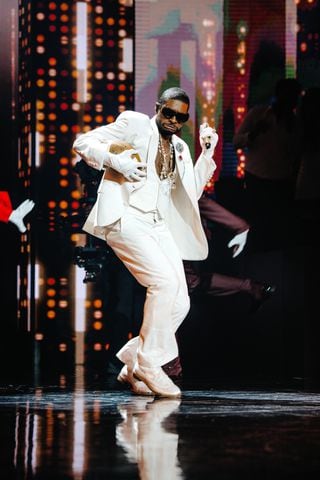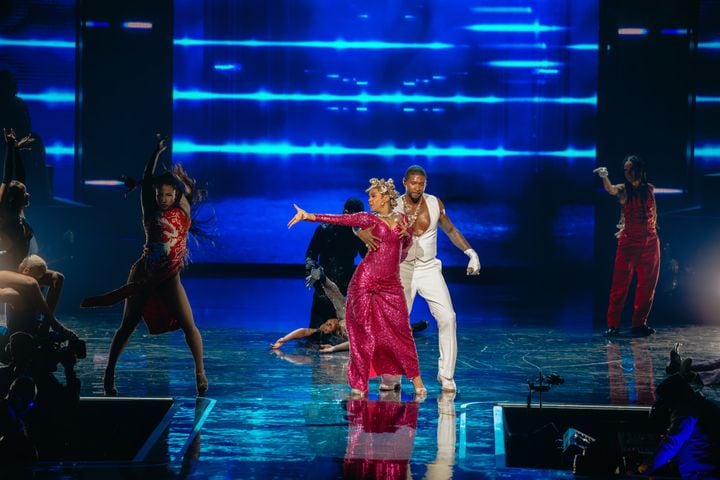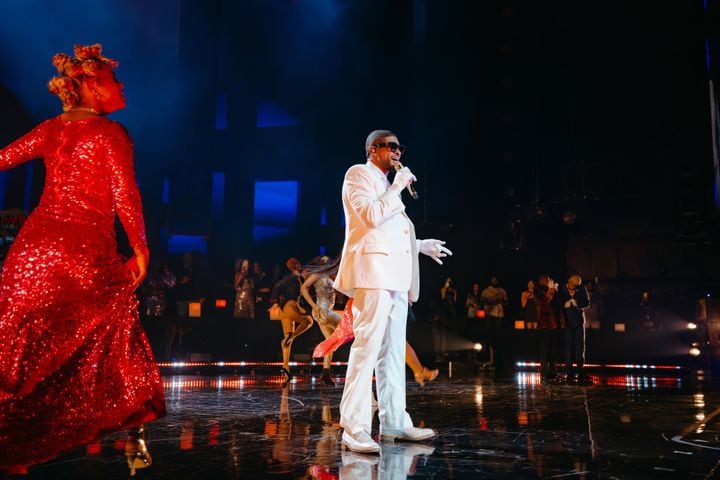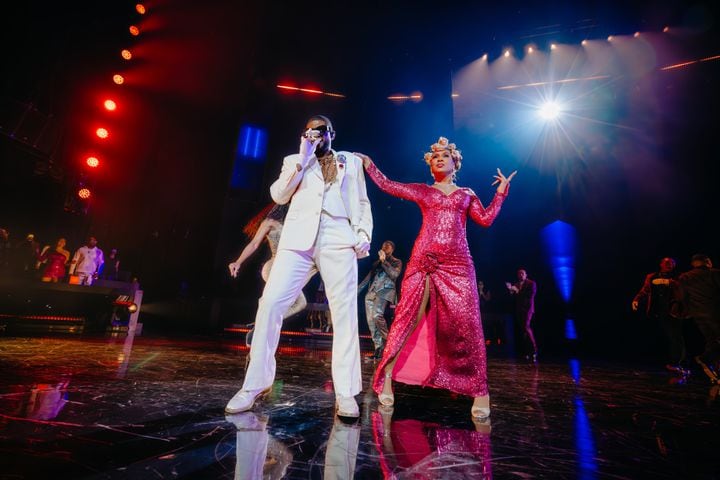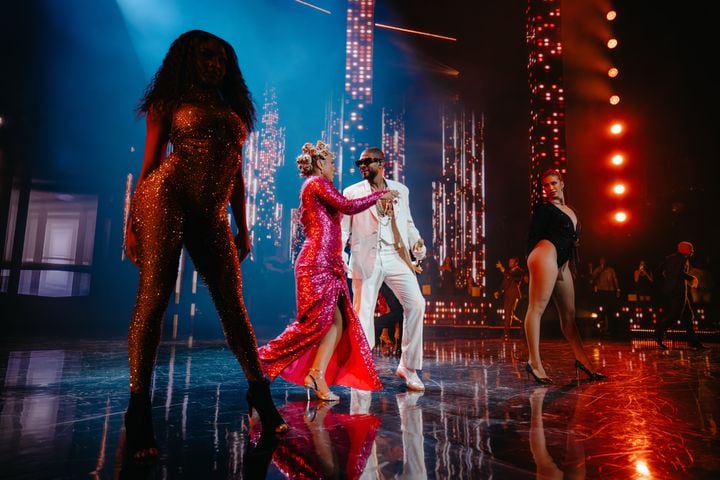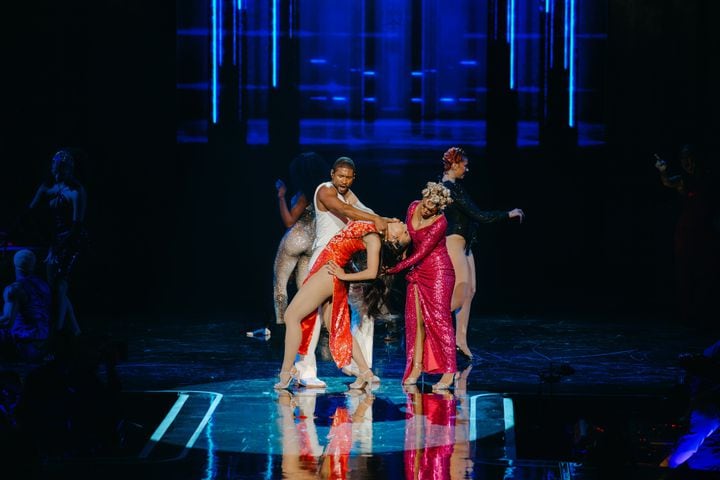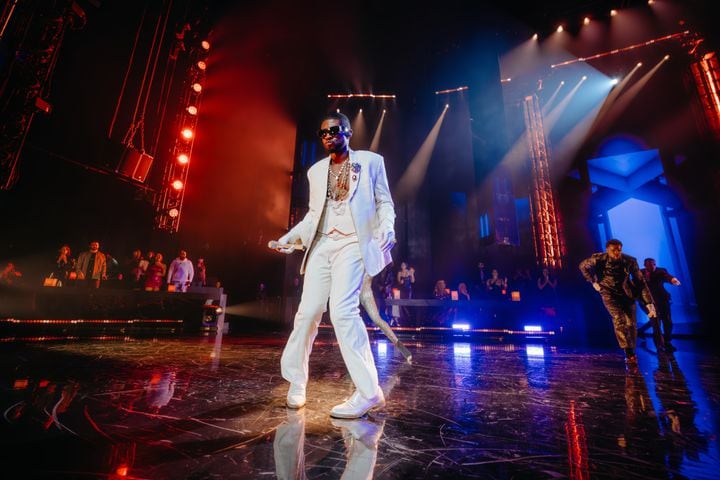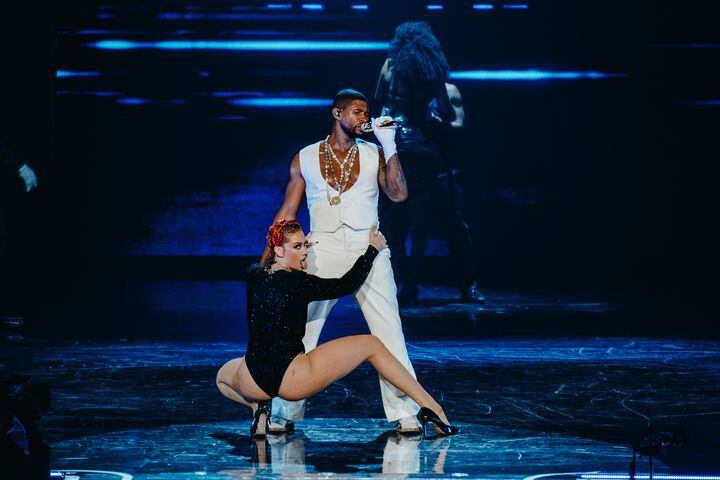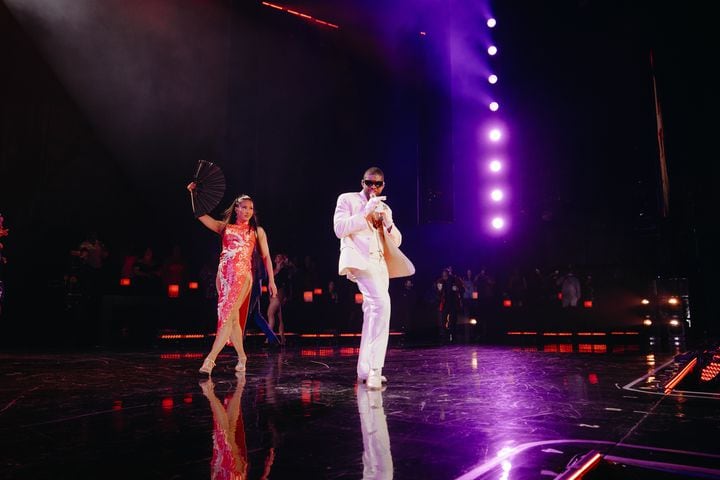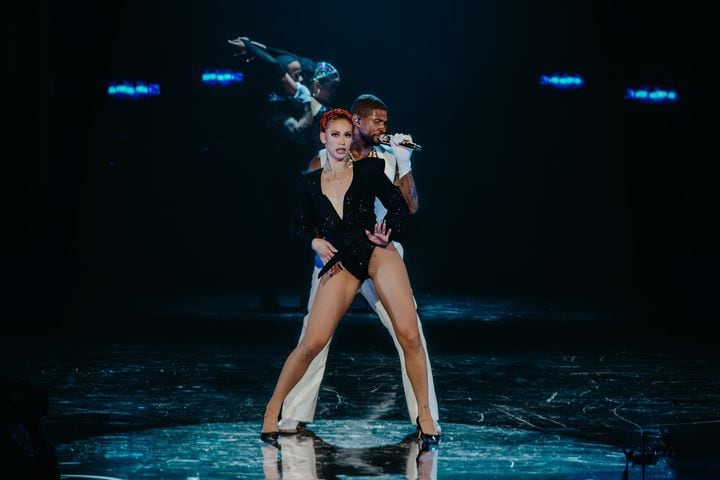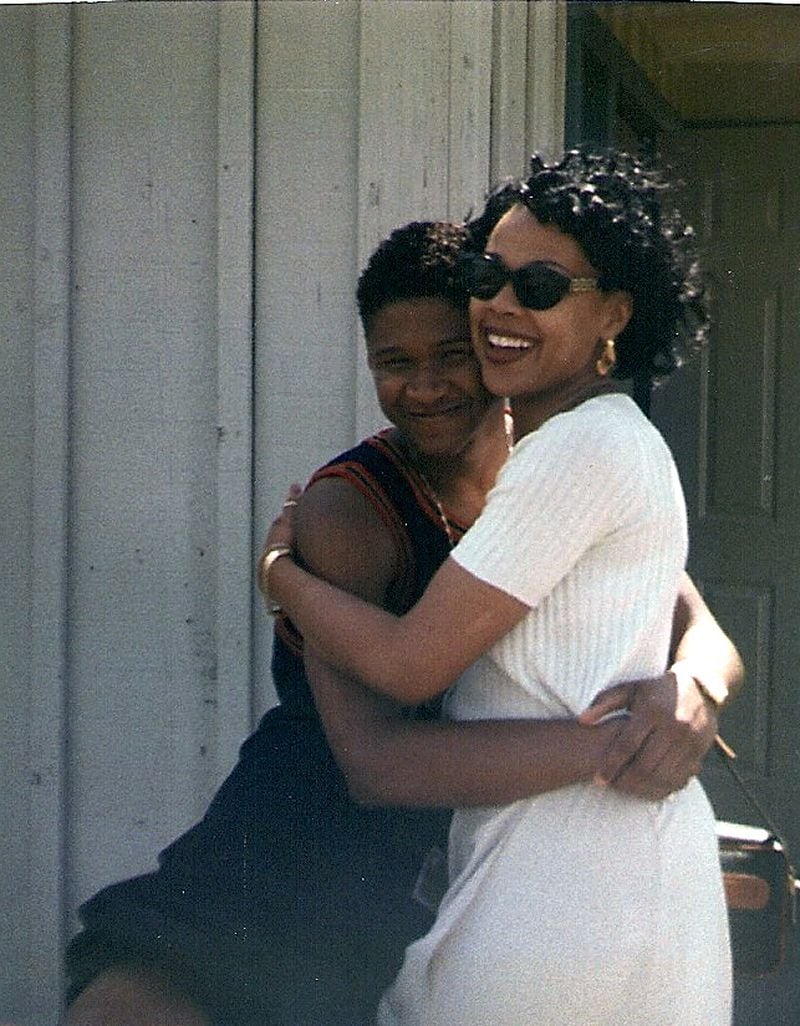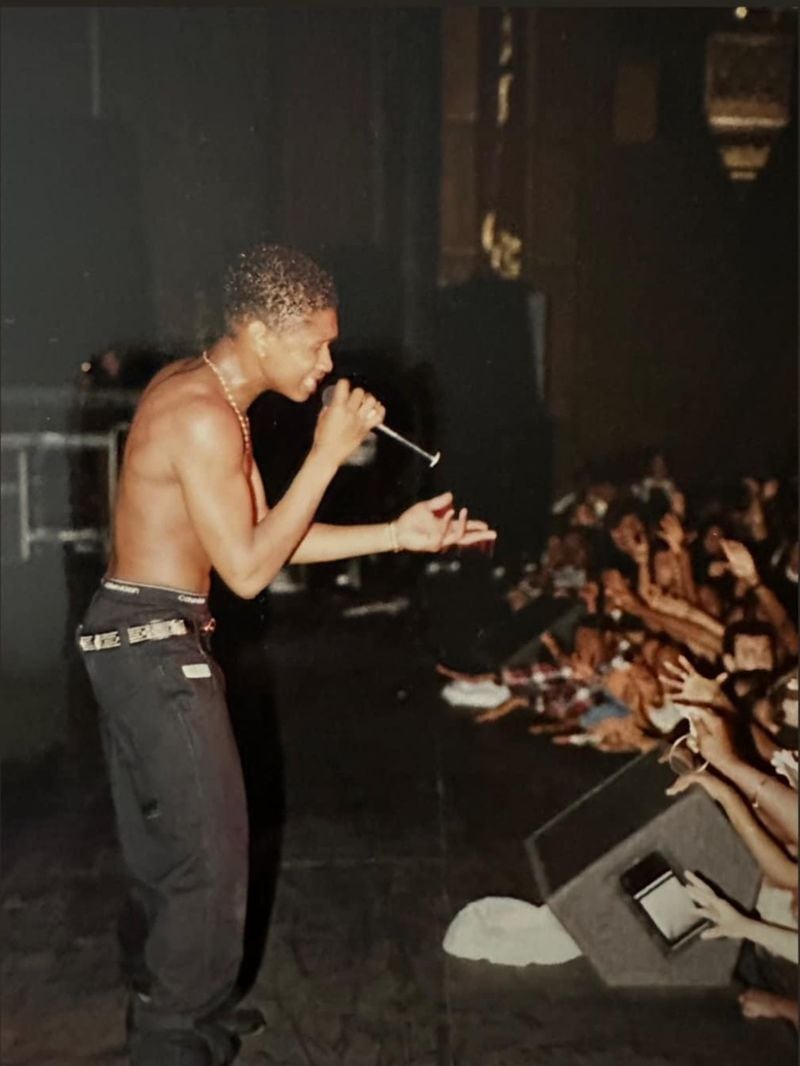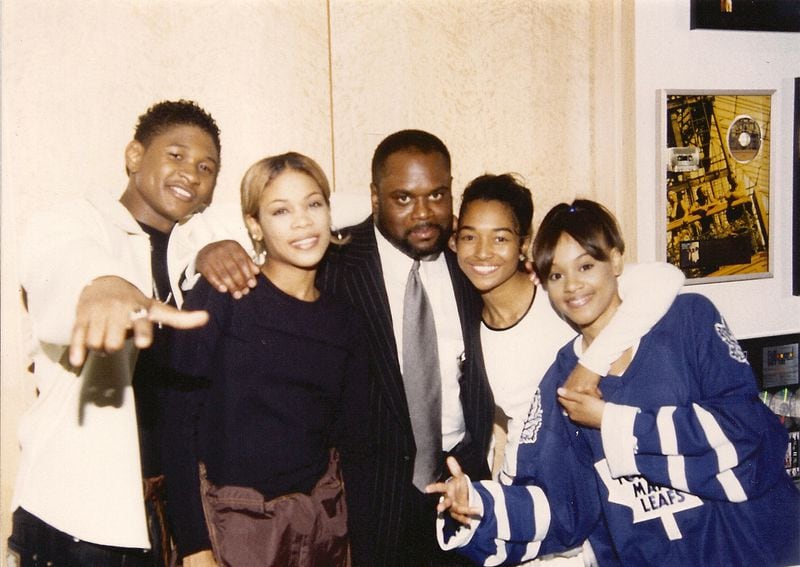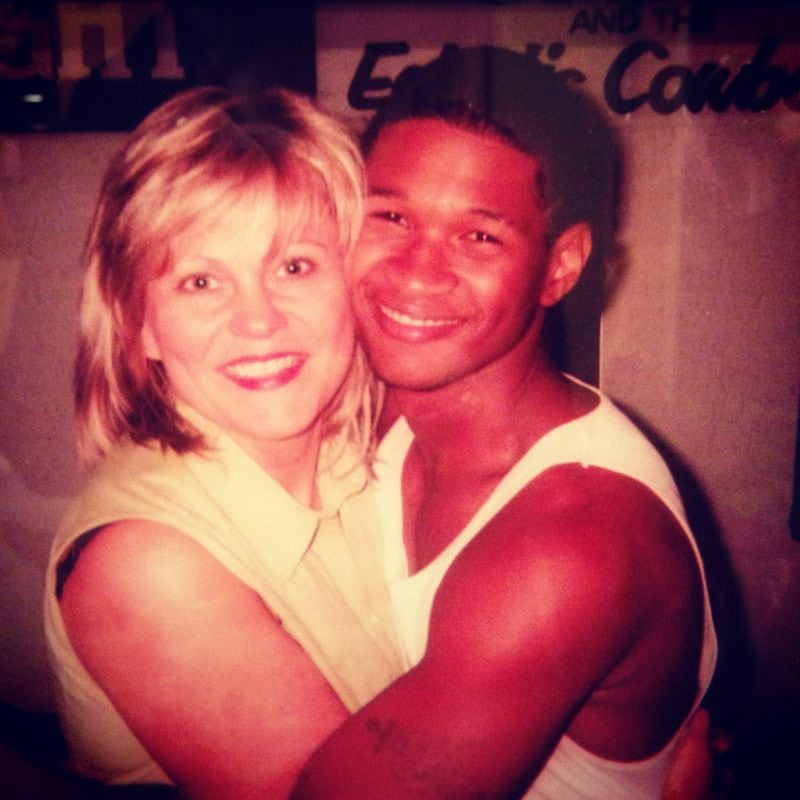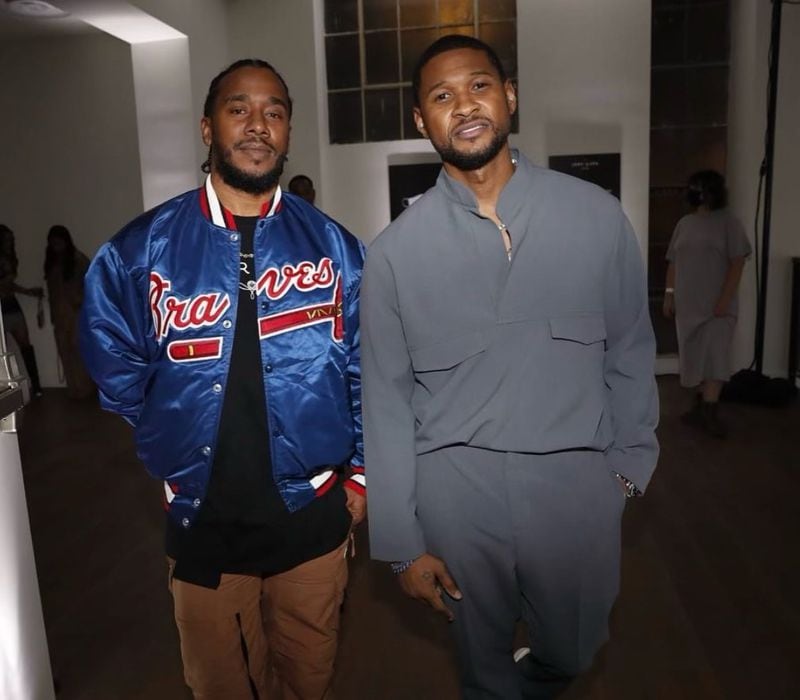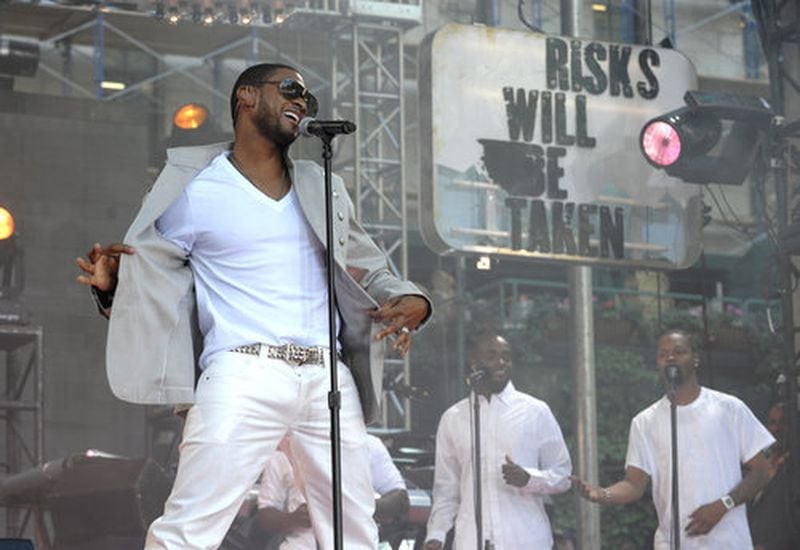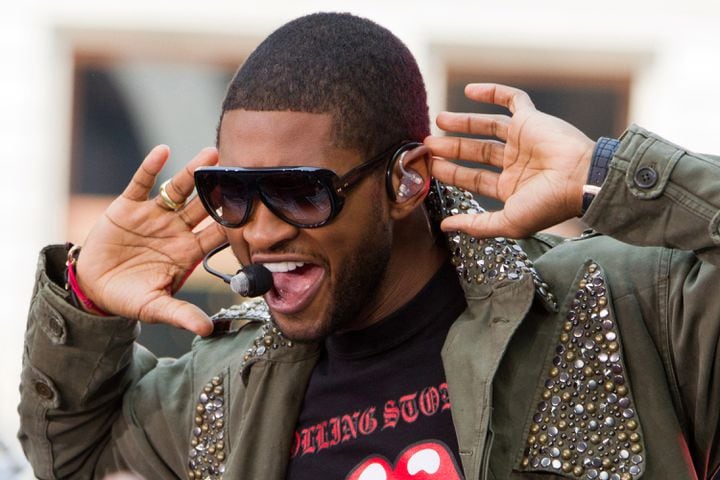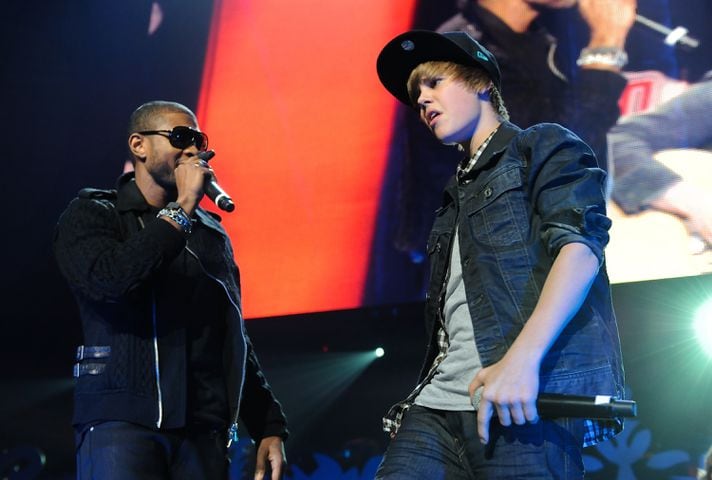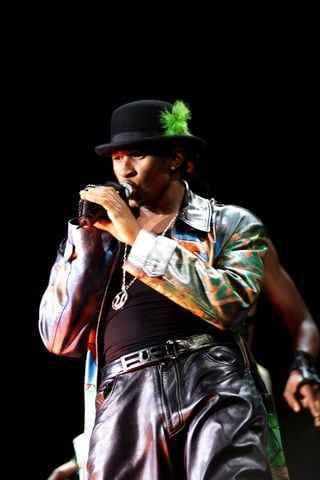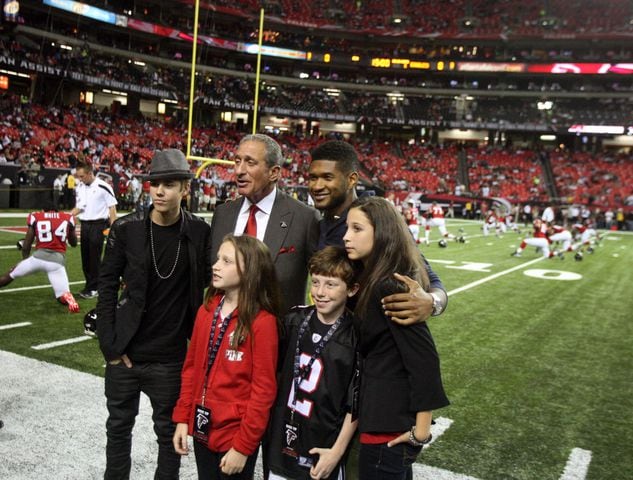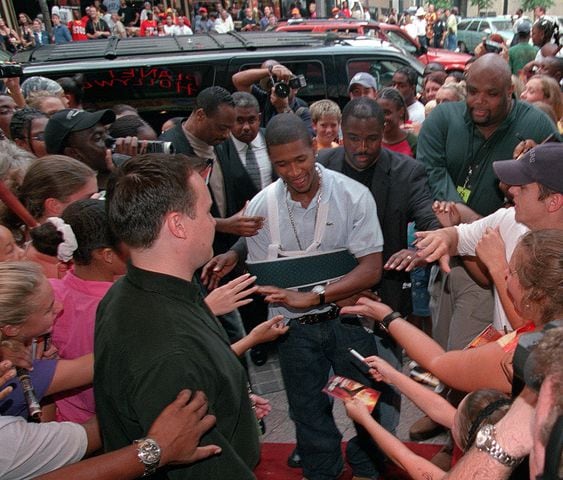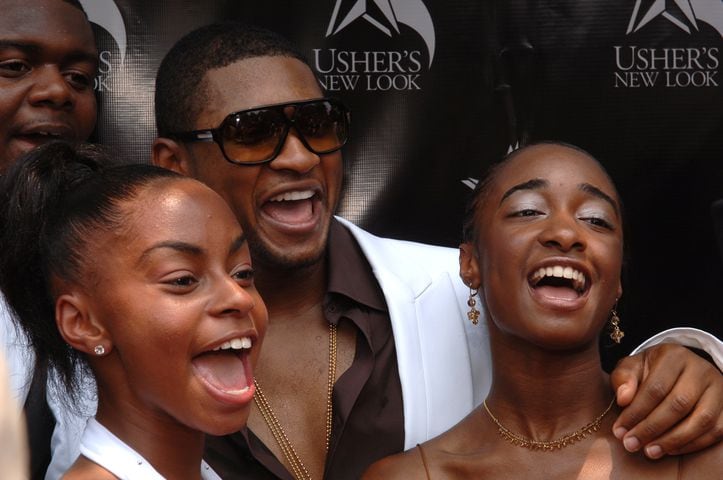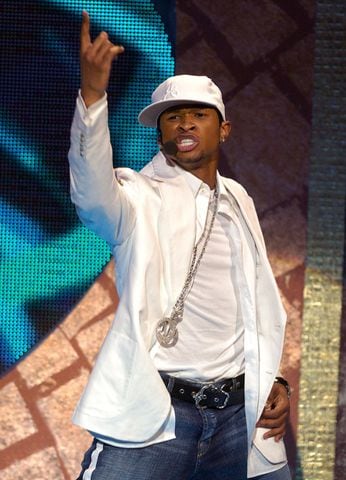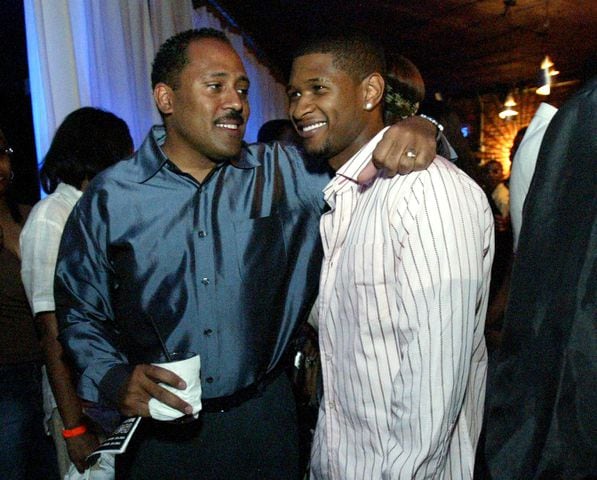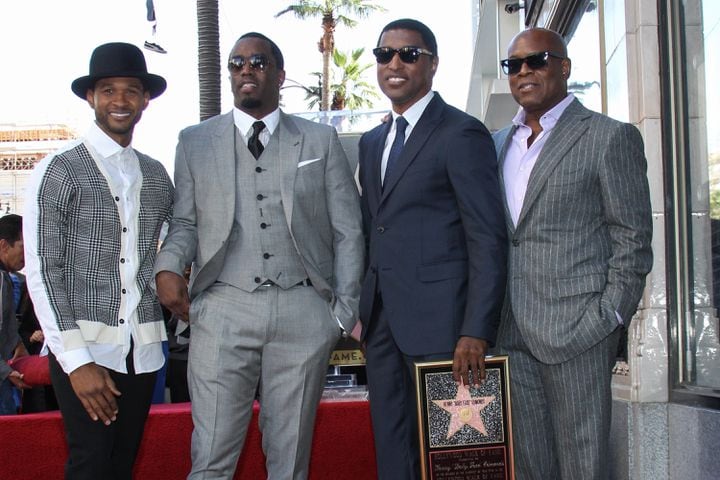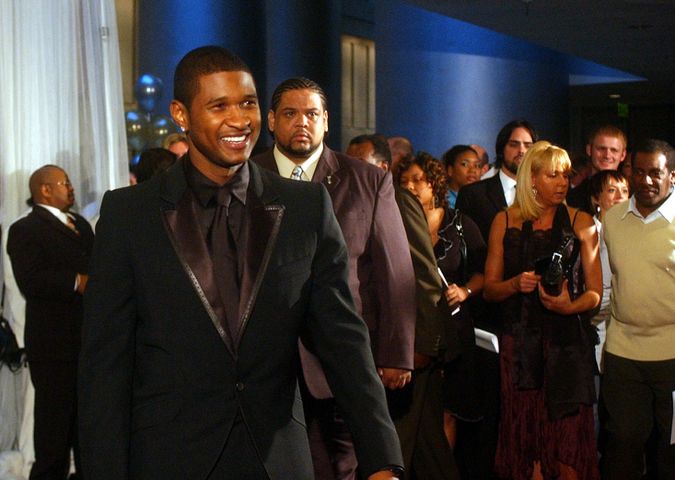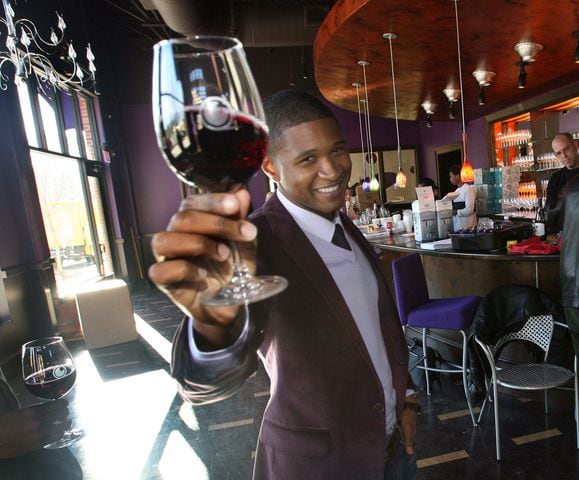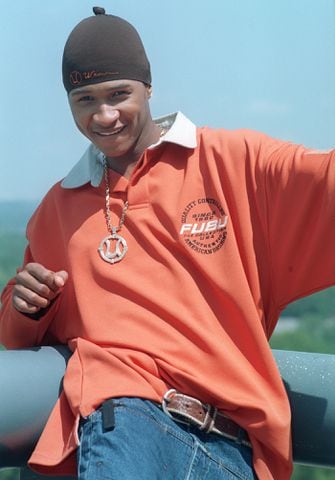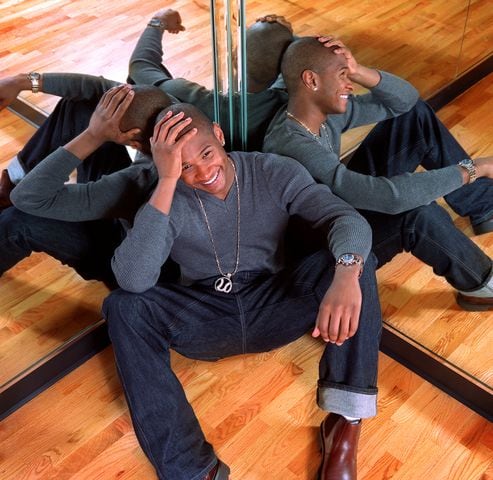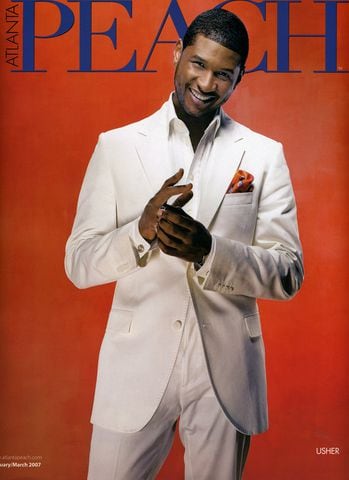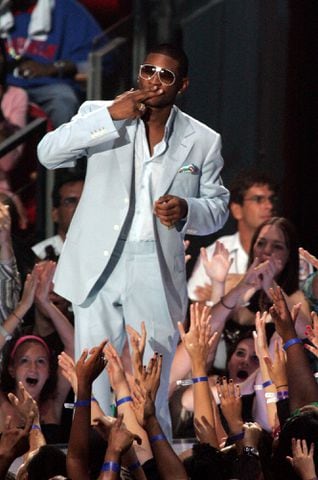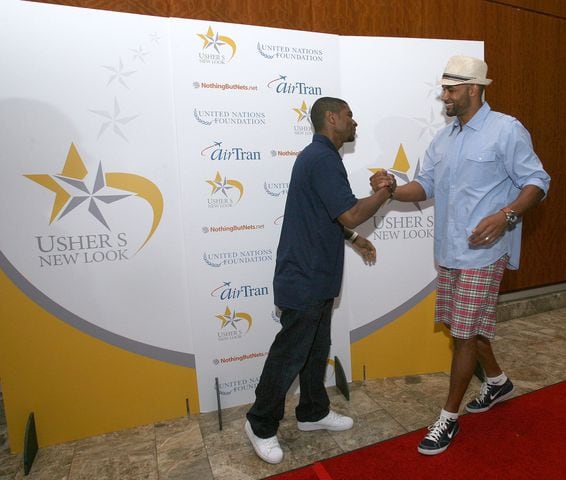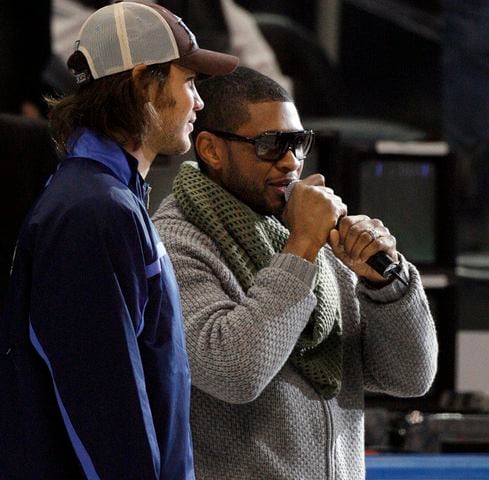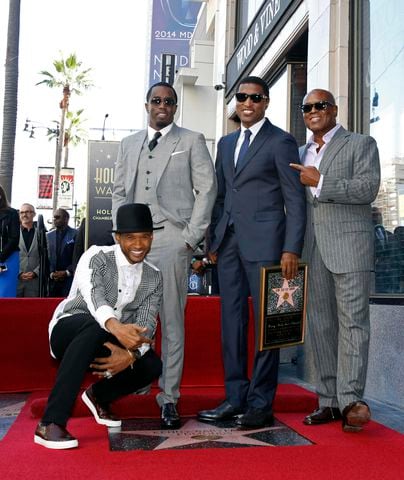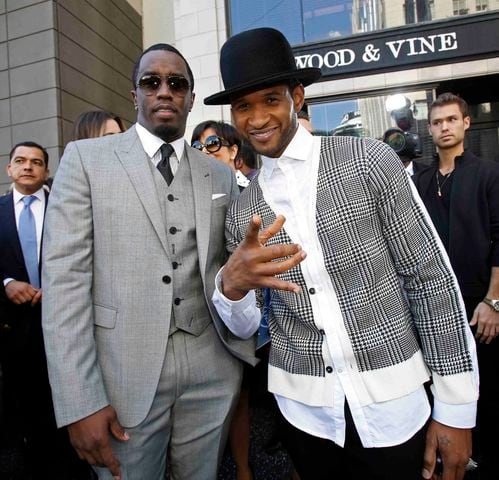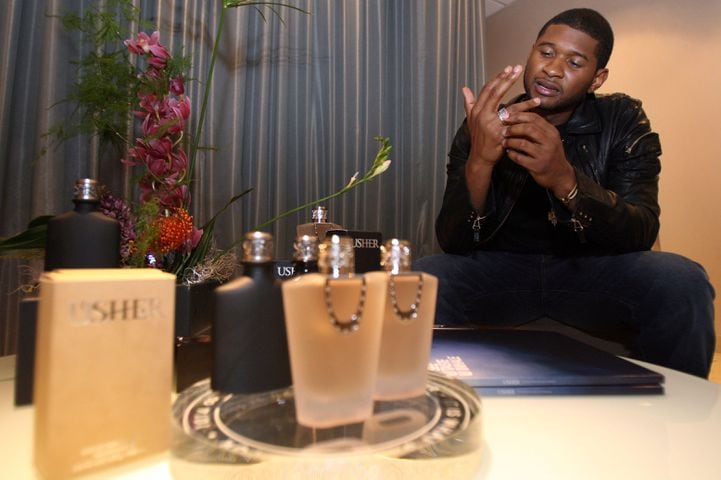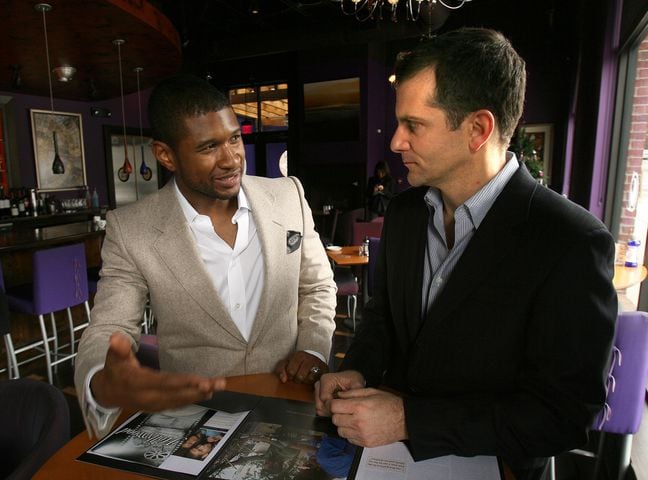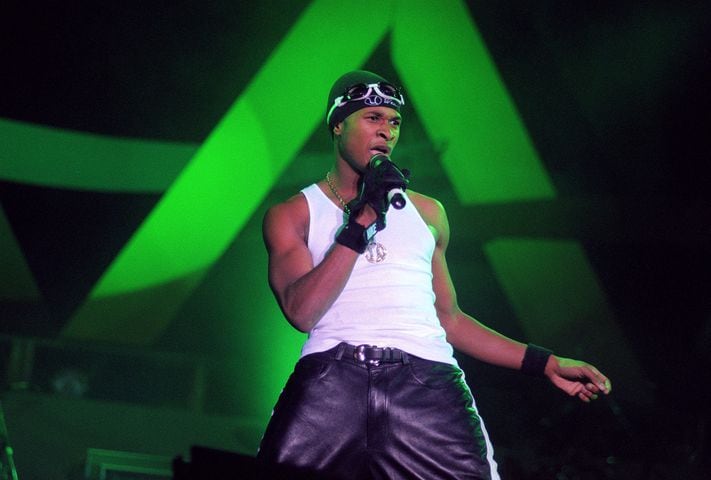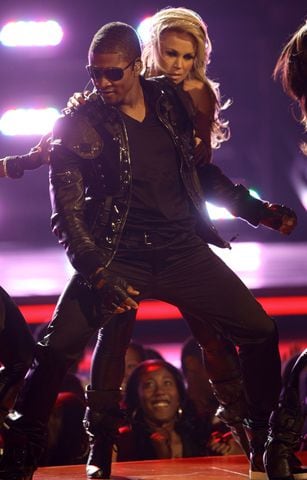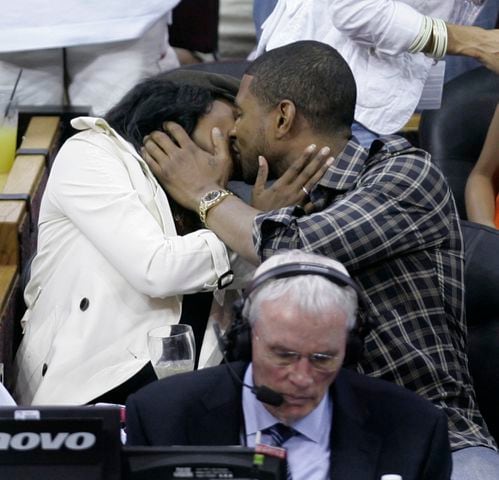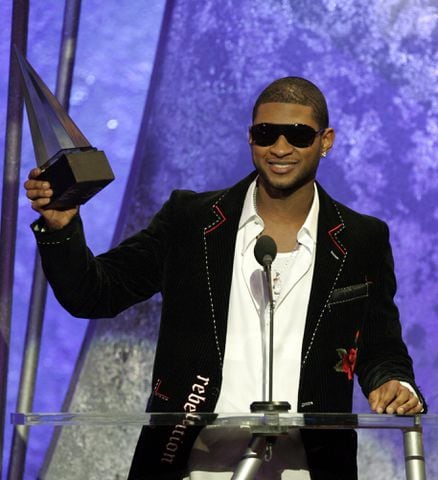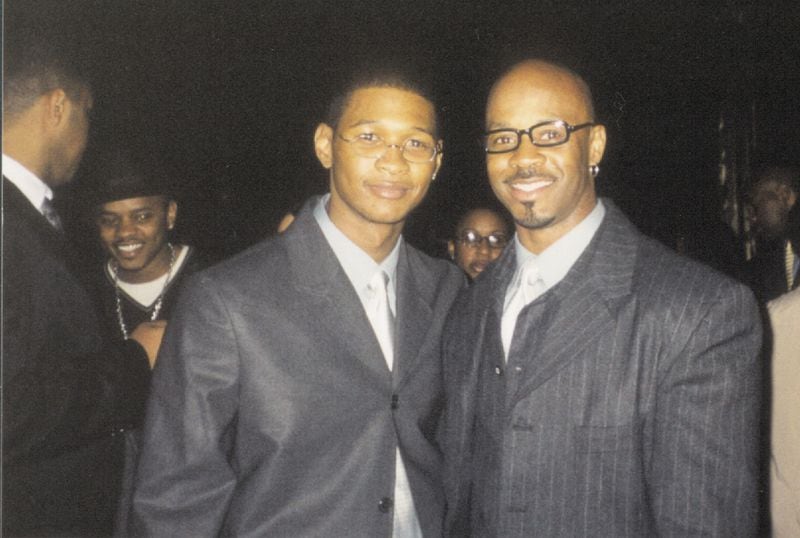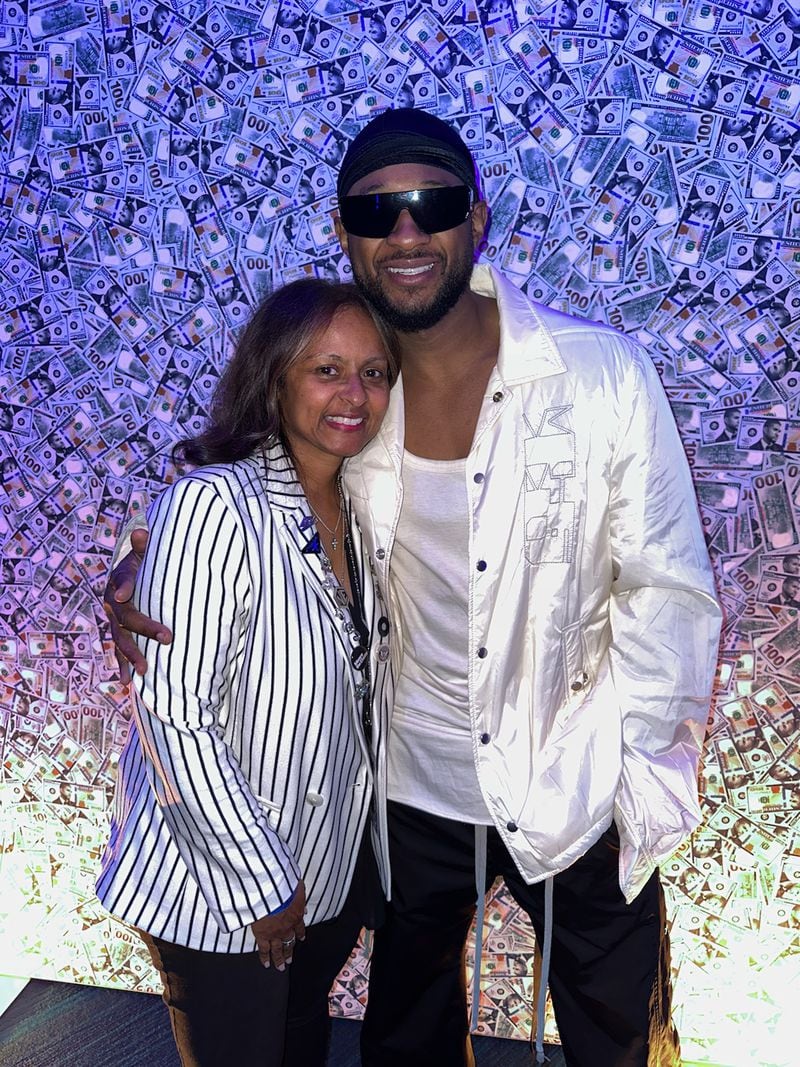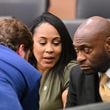In 1994, Sheri Riley kept getting turned down by the NBA whenever she tried to book a then-unknown Usher to perform as part of the league’s Stay in School Jam. Finally, after six months of attempts, the Detroit Pistons took a chance on the newly signed LaFace Records artist.
The executives and 16,000 screaming teenagers in the crowd were completely blown away by the 16-year-old tenor’s showmanship.
“He walked out in the middle of that arena like he’d just wrapped 100 Vegas shows,” said Riley, LaFace’s then-senior director of marketing. “Kids started fainting. He went in there with no big record and just killed it.”
Credit: Handout
Credit: Handout
It’s been three decades since that moment, and Usher Raymond IV, now 45, is about to headline the Super Bowl LVIII halftime show on Sunday night. The Atlantan joined the Black Eyed Peas for their set in 2011 but this time he will command the spotlight.
Two days before showtime, the eight-time Grammy winner released his ninth studio album, “Coming Home,” on Mega, his own imprint that he co-founded with LaFace co-founder Antonio “L.A.” Reid. It’s the vocalist’s first full-length project in eight years.
The Super Bowl halftime performance, like the many steps in Usher’s carefully choreographed rise to stardom, is being polished to a sheen.
“Everyone has been working their bodies because not only is it the biggest stage and night for him,” said Keeyah Johnson, Usher’s road manager. “It’s all of our biggest night, so everyone is focused on doing their best and giving it their all. We know that everything we’re doing is for a bigger goal.”
Usher started rehearsals for the halftime performance in Los Angeles following his final Las Vegas show in December. Launching on the strip in July 2021, he sold out 100 shows between two venues.
“This guy has been secretly rehearsing for months,” said DJ Mars, resident DJ for Usher since he signed with LaFace. “He’s ready. He put Atlanta on his back and didn’t waver. Expect a story to be told that’s going to represent Atlanta and R&B music to the fullest.”
(The AJC sought an interview the singer ahead of his career milestone but his representatives said he was too busy with his epic rehearsals to talk.)
Credit: Handout
Credit: Handout
Getting to that Super Bowl stage was quite a journey. In 1991, Usher, who was born in Dallas, joined a boy band, Nu Beginning, in Chattanooga, but was later pulled out of the quintet by his mother, Jonnetta Patton, because of what she believed was shady management.
Convinced that he would become a superstar, unlike her son at that early juncture, Patton became his manager and assured the 12-year-old that his best days were ahead. She moved him and his younger brother to Atlanta the following year and started signing him up for talent shows. Usher won those anytime he competed.
In August 1992, A.J. Alexander heard the young singer as he was leaving a talent show. Alexander, who was singer Bobby Brown’s bodyguard, told Patton that he could land Usher a record deal.
Alexander soon had Usher regularly doing martial arts, running laps, jumping over furniture and pushing vehicles while singing full songs without stopping. He had the teenager study footage of Brown’s concerts.
“Usher had to be able to sing and dance at the same time,” Alexander said. “That’s what made his vocals grow. It wasn’t easy, but it was a process.”
Credit: Handout
Credit: Handout
Six weeks later, Alexander assembled a band to back Usher and invited Bryant Reid to catch him at Atlanta’s Center Stage. Reid, LaFace’s senior vice president of A&R, then arranged for the kid to audition for his brother, L.A. Reid, at the company’s Buckhead office.
Usher was immediately signed to a contract, becoming labelmates with TLC, Toni Braxton and Outkast.
“This kid had it all, and it blew me away,” Bryant Reid said. “We were an embryonic label but had some momentum. He was charismatic, his tonality was great, and his showmanship was incredible.”
Ahead of his new jack swing-sounding self-titled debut album dropping in 1994, LaFace sent Usher to New York for tutoring at Sean “Diddy” Combs’ “Flavor Camp” the previous year. The album’s mature subject matter, punched up with with Diddy’s East Coast swagger, generated R&B chart success with “Think of You” but didn’t result in platinum plaques.
Credit: Handout
Credit: Handout
In 1995, Usher started going through puberty, causing him to develop bad acne, lose his voice and potentially his deal with LaFace. Patton brought in Atlanta vocal coach Jan Smith to help his maturing vocals.
“He already had the goods but had a few technical things he didn’t really know how to apply,” Smith said. “He’s more proficient, and his voice has advanced considerably.”
The entertainer continues to use the same regimen before he steps on stage.
“He meditates, goes on a pretty strict diet, exercises and does yoga,” Smith continued. “He plans his work and works his plan. He does all of the right things to keep his physical container in good shape. He understands that his voice and body are his instruments.”
Credit: Johnny Nunez
Credit: Johnny Nunez
Two years later, Kawan “K.P.” Prather stepped in as Usher’s A&R (artists & repertoire representative) for “My Way.” He suggested making Usher’s roots a core part of his image and to let Jermaine Dupri craft a sound that would bring his youthful but relatable energy to the music.
‘There’s something cool and charming about being southern, and the trick was that Usher didn’t look like someone who had problems,” Prather said. “He’s vulnerable and has conversations in his music that are honest, so it gets heard very clearly.”
The plan paid off. Released in 1997, “My Way” went multi-platinum with sales topping 7 million copies: scoring pop smashes such as “You Make Me Wanna” and “Nice and Slow.” Usher began touring and acting in film and television programs including “The Faculty,” “Light It Up,” and “The Bold and the Beautiful.”
“He was always rehearsing, wanting to perform and coming up to the label getting involved in meetings,” said Shanti Das, LaFace’s promotions manager. “He studied the greats and was so hellbent on succeeding and winning.”
Credit: Peter Kramer / AP
Credit: Peter Kramer / AP
Usher wanted to use his fame and influence to inspire the next generation. He and Patton started a nonprofit together, Usher’s New Look, in 1999 to support youth to become leaders and global citizens. This year is the organization’s 25th anniversary.
“Whether he traveled to the MTV Awards, the Gulf Coast for Hurricane Katrina, or campaigned for President Obama, he always had the kids and community at the center of his work,” said Gavin McGuire, New Look’s former chief operating officer. “The same energy he puts on stage is the same that goes into his philanthropy.”
Added Shawn H. Wilson, New Look’s former president and CEO, “We built a model that has stood the test of time, and that’s a tough thing to do in any industry. Serving 100,000 kids is transformational, and he deserves his flowers for the ‘heart work’ as he calls it.”
;Usher went back into the studio with Dupri to release his third LP, “All About U” in 2000, but music piracy and L.A. Reid’s lack of confidence in the project caused the album to be shelved. LaFace also was sold that year to BMG, which closed the Atlanta office, while Reid became president and CEO of Arista Records. It seemed that Usher’s music was put on pause, a notable downturn in his career trajectory.
So the chart-topper kept acting, went back to the drawing board, and came out with “8701″ the following year. It sold 4 million copies and spawned monster singles including “U Remind Me,” “U Don’t Have to Call” and “U Got It Bad.”
The initial plans to bring Usher to Las Vegas for an extended residency were formed, but it wouldn’t come to fruition for another 20 years.
Credit: Handout
Credit: Handout
“Being a star and commanding the room was never any question,” said D.L. Warfield, former creative director for LaFace. “People were around thinking Vegas was lame and wack, but his mother had really good foresight. He was always that dope.”
Three years later, Usher released the mammoth “Confessions,” featuring the hits “Yeah” and “Burn,” which was certified Diamond for sales of more than 10 million copies. It’s both the last R&B album and album by a Black artist to reach that height.
“Being determined, dedicated and disciplined got my mom and brother through everything because they figured out solutions and executed,” says James “J. Lack” Lackey, Usher’s brother. “It’s been a rollercoaster but the blueprint for success in our family.”
Credit: Handout
Credit: Handout
Usher has released four studio albums since “Confessions.” Over the span of his career, he has sold more than 80 albums worldwide. He debuted on Broadway in “Chicago” in 2006, became a coach on NBC’s “The Voice” for the 2013 and 2014 seasons, earned a star on the Hollywood Walk of Fame in 2016 and went viral with his NPR Tiny Desk appearance last year, receiving 80 million hits worldwide.
Headlining the Super Bowl, with his just-announced 24-city Past Present Future tour providing an encore, is the icing on the cake for Usher’s immediate family.
“Getting to the biggest stage of his career is a cloud of joy,” Patton said. “The perfectionist in him drives everybody crazy, but every time I see him singing, I think about each milestone and what it took to get him to that next level.”
The Super Bowl performance is also the ultimate champagne toast for the many behind the scenes who contributed to Usher’s steady rise and longevity.
“This Super Bowl performance is a win for all of us,” Das said. “It’s a win for the city of Atlanta, LaFace and Arista/BMG, the DJs, and all of us that saw the passion in this little kid. He really is our superhero.”
About the Author
